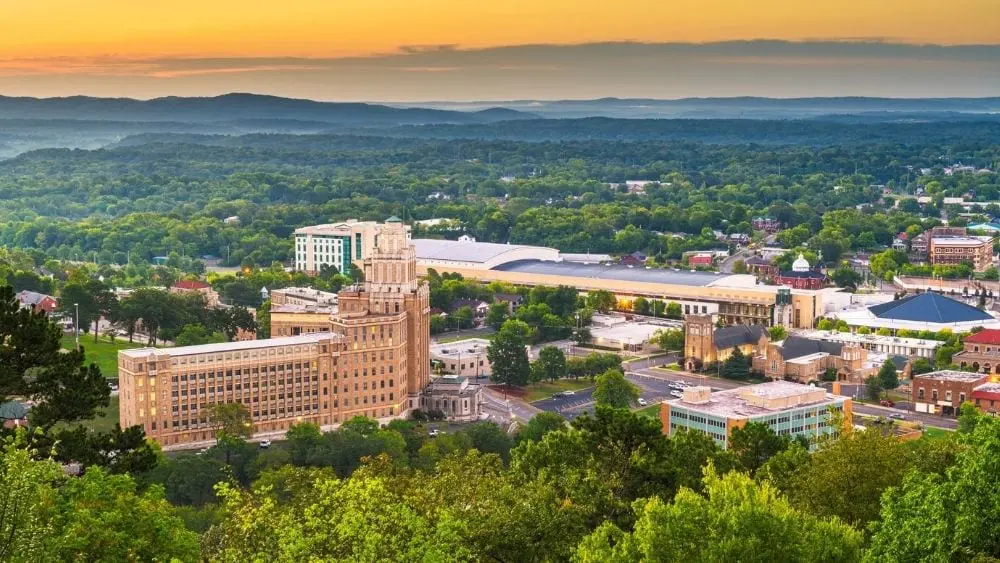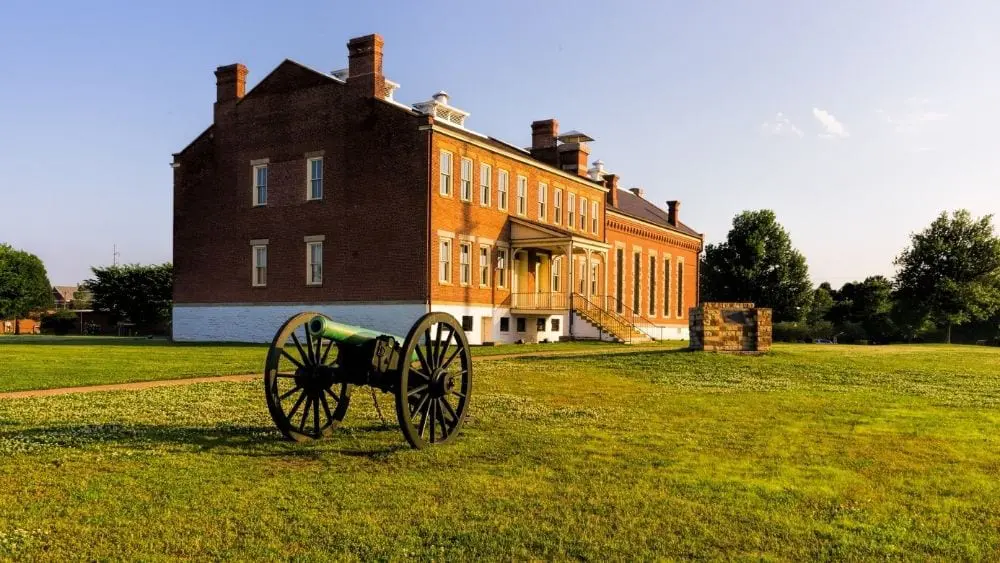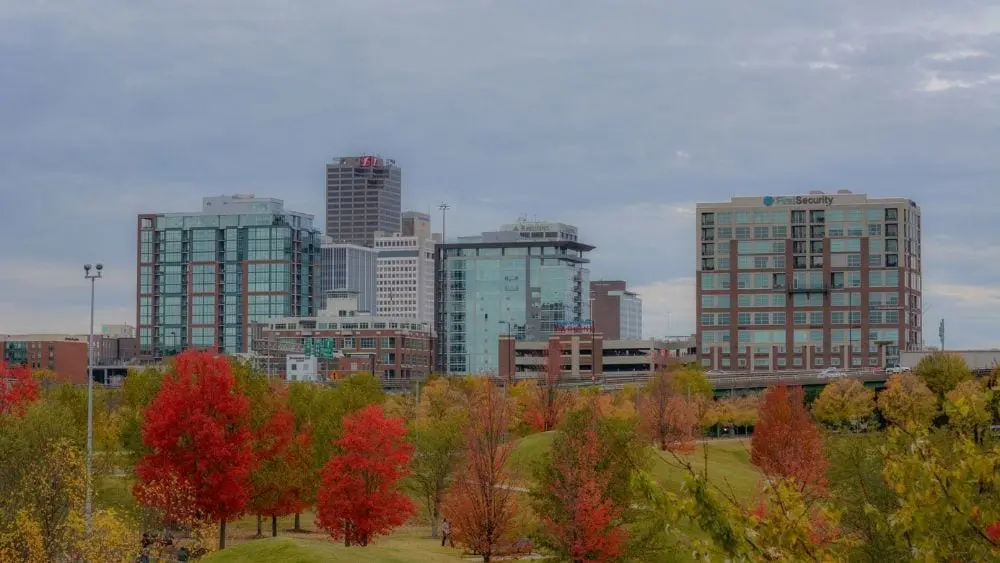
With its clear lakes and streams, forests and hot springs, and abundance of wildlife, it’s easy to figure out how Arkansas got its nickname as the Natural State. Are you a homebuyer about to close on a new home in Arkansas?
While you may have saved up a hefty down payment for your piece of property in this beautiful state, there’s another roadblock every homebuyer needs to prepare for: closing costs. Nationally, this expense can run up to the tune of more than $6,000 – an amount that surprises 35 percent of Americans buying a home, according to a 2017 poll conducted for ClosingCorp.
Closing costs are a broad term, bundling in all the fees tied to finalizing your home sale, from paying upfront for your home insurance to covering your lender’s origination fees to hiring a title company to conduct a title search on your property, and everything in between. Instead of paying each service provider one-by-one, these fees are grouped together and paid in one single sum on your closing date.
There are plenty of affordable places to live in Arkansas, but how much are closing costs? Here’s an in-depth look at what’s included in closing costs in the Natural State, along with tips on how homebuyers can save some cash on this step in the homebuying process.
How Much are Closing Costs in Arkansas?
Homebuyers in Arkansas can breathe a big sigh of relief: the Natural State has some of the lowest closing costs in the country, clocking in at just $1,785 on the average price for property of about $143,385. That makes up just 1.24 percent of your home’s purchase price.
For comparison, nationally, Americans spend about $6,087 on closing costs for the purchase of a single-family home, according to a 2021 report by ClosingCorp.
Keep in mind, this figure is a moving target, depending on the state you live in and the home’s selling price. Some states, including Arkansas, have generous homebuyer assistance programs to help you shoulder the burden of this expense. These numbers are also based on a homebuyer applying a 20 percent down payment, so paying for private mortgage insurance isn’t included in this figure.
For comparison’s sake, the states with the highest average closing costs in 2020 were District of Columbia, New York, Pennsylvania, Washington and New Jersey, while those with the lowest were Missouri, Indiana, Arizona, Arkansas and Iowa. In D.C., closing costs average about $13,722.
In Arkansas, buyers and sellers typically split escrow costs right down the middle, but buyers are responsible for all lender fees. These include your loan application fee, underwriting fee, mortgage insurance, and prepaid interest.

What’s Typically Included in Arkansas Closing Costs?
A great deal of activity goes down on closing day aside from receiving the keys to your new home: paperwork is signed off on, a large pot of money is transferred, and the property title is officially yours. Your down payment is due, and so are your closing costs, making for one extravagant day of spending.
Homebuyers in Arkansas may be wondering what’s included in a closing costs bill that runs up to nearly $1,800. Here’s a closer look at what to expect in the breakdown of your closing costs bill in the Natural State:
Loan origination fees
Unless you have the cold hard cash to buy your home outright, you’ll need to recruit the help of a lender to secure a mortgage. This is why loan origination fees are likely one of the first initial costs you’ll encounter in the homebuying process.
Loan origination fees are what your lender charges you to set up and process your home loan application, including all the underwriting involved. Expect to spend about 0.5 to one percent of your loan amount on these fees. For the average home in Arkansas priced at about $143,000, that’s about $715 to $1,430.
Credit report fee
During the underwriting process, your lender will check your credit score before offering you a loan. Expect the lender to pass along this $25 expense to you. If more than one borrower is involved, double this expense because your lender will need to pull both of your credit reports.
Appraisal and home inspection fees
Before your lender provides the funds for your home purchase, you’ll need to pass a few more checkpoints: your appraisal and home inspection.
In a nutshell, your lender will send a third-party appraiser to your potential new home to make sure it’s priced at the right value. It’s an essential step in the homebuying process – if you default on your home loan, your lender needs to know they can sell the property to make up for the outstanding balance.
With a home inspection, you’ll need a professional to check on the nuts and bolts of your potential buy to make sure everything is good running order. Your home inspector can also flag any issues you can ask the seller to fix before finalizing the deal.
In both cases, the onus is on the homebuyer to pay for these professional assessments. Count on spending about $500 for each of these services in Arkansas, but this amount will fluctuate depending on where you live in the state and the size of the home.
Arkansas Real Estate Transfer Tax
Homebuyers in the majority of the country – minus 13 states – need to account for “real estate transfer taxes” in their closing costs, including Arkansas. Transfer taxes are local and state government taxes that are paid as the seller transfers the home to the buyer. They may be listed as a deed tax, mortgage registry tax or stamp tax on your closing costs bill. Some states even charge a recording fee for this transfer of property.
In Arkansas, transfer tax is only collected at the state level, but homebuyers may run into “nominal recording fees” at the city of county level. There are no set rules on whether the buyer or seller pays for the transfer tax in the Natural State.
The going rate for real estate transfer tax in Arkansas is $3.30 per $1,000. That means a home priced at $143,000 should come with a transfer tax of $471.90.
Escrow fees
In Arkansas, title companies handle escrow accounts and attorneys conduct the closing. This means you’ll need to hire a title company to manage your closing costs while a lawyer will be involved in all of the legal paperwork you’ll need to sign off on.
Your title company acts as the neutral third party between you, the buyer, and the seller or home builder. They’ll hold all your funds in a third-party escrow account, so you aren’t paying the seller until the ink is dry on your home purchase. You can also count on your title company to guide you through all the nitty gritty details, like buying adequate insurance policies and executing the title search.
Escrow fees are about one percent of the sale price of your home, depending on the title company you select. Bear in mind, these are often split between the buyer and seller in Arkansas.
Attorney fees
As noted, attorneys are on hand at closing, so you can count on them during your homebuying process to draw up, review, or certify contracts, deeds, and other legal documents. They’ll make sure your contracts are iron clad and in your best interests.
How much you’ll spend on an attorney in Arkansas depends on where you live in the state, how many hours you may require their services, and their rate.
Private mortgage insurance
If you aren’t providing a 20 percent down payment, your lender will expect you to buy private mortgage insurance in Arkansas. PMI allows borrowers to qualify for a conventional loan even if they put down only 5 to 19.99 percent of their mortgage. In Arkansas, your lender will refer you to private insurance companies to help you with this purchase.
While you’re the one paying for the insurance, the coverage is for your lender. Because you haven’t put down 20 percent, PMI protects your lender in case of loan default.
This cost isn’t included in the ClosingCorp tally of closing costs expenses, but PMI typically ranges from 0.25 percent to as high as 2.25 percent of your outstanding loan balance, depending on the size of your down payment and your credit score.
Title search and title insurance
Another crucial step in the homebuying process that adds to your closing costs tab is a title search. When you buy property – whether it’s a new build or an existing home – you must confirm that you’re going to own it free and clear. To certify this, your title company will conduct a title search to double check that the land has no liens or lawsuits in progress.
In Arkansas, you may be spending about $250, but the cost may fluctuate depending on the complexity of the historical records on the property and your title company’s rates. The Arkansas Title Insurance Act insists that all homebuyers conduct a search on at least the past 30 years on your potential property.
After the title search is complete, your lender will expect you to buy title insurance as a safeguard. If the title search misses something, title insurance acts as a second layer of defense so you aren’t responsible for any surprises.
Survey fee
With large acres of land to work with in Arkansas, your lender may ask that you hire a surveyor to define property lines to confirm your property’s boundaries. A surveyor may come to scope out the land, draw shared fences, and identify any peculiar boundaries.
This could cost you about $300, if it’s a required step.
Homeowner’s insurance
Regardless of where you live in the country, your lender will require you to take out homeowner’s insurance and have the first six months to a year of coverage paid in full at closing. Homeowner’s insurance is crucial to have in effect by closing because it’ll cover any physical damage to your home caused by fire, wind, vandalism or theft.
This is a “prepaid” expense, meaning it must be paid in cash at closing and can’t be rolled into your home financing.
Pest inspection
From a termite clearance letter to checking for dry rot or other pest-related damage, some government-insured loans may insist on homebuyers conducting a thorough pest inspection on their potential new home. Hiring an inspector for this step should cost about $100.

How Can I Lower My Closing Costs in Arkansas?
Savvy homebuyers try to save cash on their home purchase where possible. And with so many state and local homeownership programs on hand, shaving down closing costs expenses is a great money-saving strategy.
Here’s a closer look at some of the primary ways homebuyers in Arkansas can lower their closing costs:
Closing cost assistance
Taking advantage of homeownership assistance programs in Arkansas is a prime way to cut back on the closing costs you’ll need to pay.
For starters, the Arkansas Development Finance Authority (ADFA) has the AFDA Down Payment Assistance program, which provides financial assistance between $1,000 up to $10,000 to help with your mortgage and closing costs. This is a massive help and is available to homebuyers zeroing in on single-family homes, modular homes, and condominiums. Mobile homes are ineligible.
There are also local homeownership programs worth doing your research on. Fort Smith, for example, runs an Affordable Housing program, providing a $4,000 grant for first-time homebuyers and single parents to help with closing costs, while Jacksonville homebuyers could apply for up to $3,000 to cover half of your closing costs.
Jonesboro also runs a homeownership assistance program, providing grants that are paid directly to your title company to pay for your closing costs.
Seller concessions
There may be some wiggle room on who pays for what when you’re dealing with your seller, especially if they’re trying to close the deal.
Work with your real estate agent to try to negotiate some of your closing costs from your seller, whether you’re buying a new build from a property developer or you’re buying a repeat sale home.
If you’re buying a new home but need to pay for upgrades, you may be able to compromise with your builder so they cover your closing costs. If you’re buying an existing home, you could negotiate with your seller to have them pay a portion of your closing costs.
Negotiate fees
It’s also worth poring over your Closing Disclosure form provided by your lender to scope out what fees and services your lender is insisting you pay. You could try your hand at negotiation again, asking your lender to omit certain expenses from the final bill.
No-closing-cost mortgages
Some homebuyers can opt into a “no-closing-cost” mortgage as a strategy to keep this expense at a minimum. In this case, your lender agrees to pay for part or all of your closing costs, but you in turn pay a higher interest rate.
In the long run, this could cost you more money because of the bump in your interest rate but for some homeowners, it may be their best choice.
Adding closing costs to your home financing
If you don’t have the upfront cash to cover your closing cost expenses, you may be able to roll this cost into your home loan. This means you’re off the hook for paying for these expenses on closing day, but you’ll make up for it via monthly mortgage payments that will be a bit higher. Ultimately, you’re paying interest on the closing costs tacked onto your first mortgage.
Check with your lender to see if this option is available. Keep in mind, not all closing costs can be included because some, such as homeowner’s insurance, must be paid upfront.
Comparison shop
Whether you’re shopping for a title company, an inspector or a surveyor, shop around for the various services needed to make sure you’re getting the best deal. Some title companies or lenders have go-to professionals on hand that they’ve approved. Using their referrals may come with steep discounts.
Other Arkansas Resources

Carmen Chai is an award-winning Canadian journalist who has lived and reported from major cities such as Vancouver, Toronto, London and Paris. For NewHomeSource, Carmen covers a variety of topics, including insurance, mortgages, and more.
 Metal Siding: Everything You Need to Know
Metal Siding: Everything You Need to Know